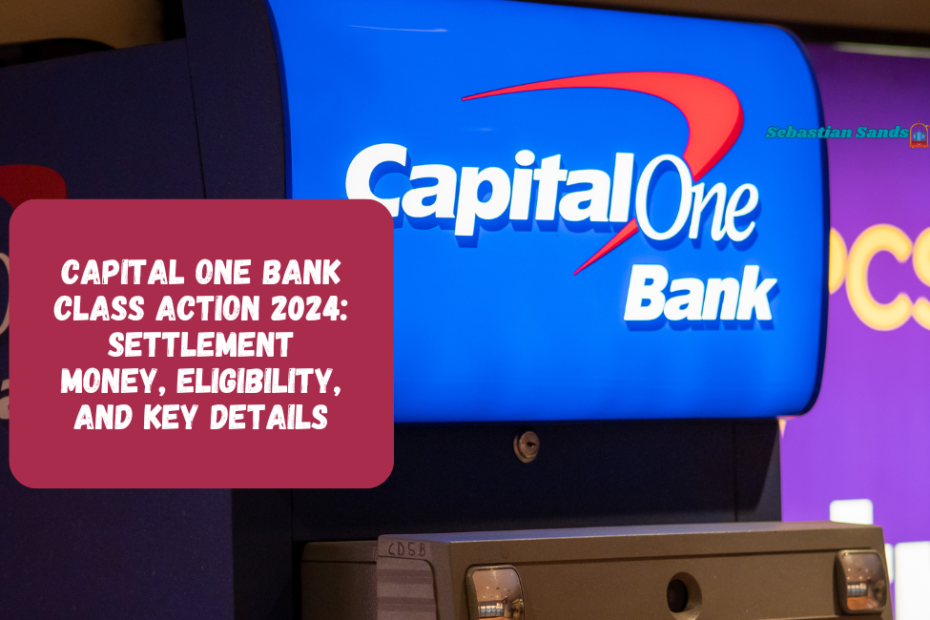In 2024, a significant class action lawsuit against Capital One Bank resulted in a substantial settlement concerning unfair bank fees. This article covers all the essential details regarding the Capital One Bank Lawsuit, including the settlement money, eligibility criteria, and the amount individuals might receive.
Overview Of The Capital One Bank Lawsuit 2024
The Capital One Bank Lawsuit, filed in 2023, focused on the bank’s practice of charging re-presentment fees. These fees were applied to checks or Automated Clearing House (ACH) transactions that initially failed due to insufficient funds but were later successfully processed when funds became available. The lawsuit argued that it was unfair for Capital One to charge these fees when the account ultimately had sufficient funds to cover the transaction.
Settlement Money: What To Expect
In June 2024, the lawsuit reached a settlement of $16 million. This settlement is intended to compensate account holders who were unfairly charged re-presentment fees between September 1, 2015, and January 12, 2022. The settlement money will be distributed among eligible claimants, although the claims window for filing has likely closed.
If you were an affected account holder, it’s essential to monitor your bank statements and online banking accounts regularly. If you notice any NSF (Non-Sufficient Funds) fees that seem unjust, particularly if the funds became available shortly after the transaction was initially rejected, you should contact your bank. In some cases, they may reverse the fee.
Capital One Bank Lawsuit Eligibility Criteria
To be eligible for a portion of the settlement, you must meet the following criteria:
- Account Holder Status: You were a Capital One account holder between September 1, 2015, and January 12, 2022.
- Re-Presentment Fees: You were charged re-presentment fees on checks or ACH transactions during this period.
- Successful Transaction Clearing: The transactions that initially failed due to insufficient funds later cleared successfully when the funds became available.
If you meet these criteria, you likely qualify for a portion of the settlement, provided you filed your claim within the court-established timeframe.
Read More: Child Tax Credit August 2024: Payout Date, Payment Amount, and Potential Increases
Understanding The Settlement Amount
The $16 million settlement will be divided among all eligible claimants who submitted valid claims within the designated claims window. The amount each individual receives will depend on the total number of claims filed and their validity.
It’s important to note that the settlement amount represents the total compensation available to all claimants, not the amount each individual will receive. The more claims filed, the smaller the individual payouts will be.
Differentiating From The Capital One Data Breach Lawsuit
It’s crucial to distinguish the re-presentment fee lawsuit from the 2019 Capital One Data Breach lawsuit. The data breach settlement was finalized in 2022, and the deadline to file a claim has passed. However, identity theft protection services remain available to affected individuals until February 13, 2028, regardless of whether they filed a claim.
Protecting Yourself From Future Bank Fees
The Capital One Bank Lawsuit underscores the importance of being vigilant about bank fees. Here are some tips to protect yourself from such charges in the future:
- Maintain Sufficient Funds: Always ensure your account has enough funds to cover checks and debits, avoiding NSF situations.
- Monitor Transactions: Regularly check your bank statements and online banking portal to track your transactions and identify any potential issues early.
- Challenge Unfair Fees: If you encounter an NSF fee that seems unfair, contact your bank to explain the situation. In some cases, they may reverse the fee.
Conclusion
The Capital One Bank Class Action Lawsuit in 2024 highlights the importance of being an informed bank customer. While the claims window for this settlement has likely closed, understanding the lawsuit’s details can help you protect yourself from similar issues in the future. Regularly monitoring your accounts and communicating with your bank can go a long way in safeguarding your financial well-being.
Thanks for visiting our site hope you like it and find it helpful..
